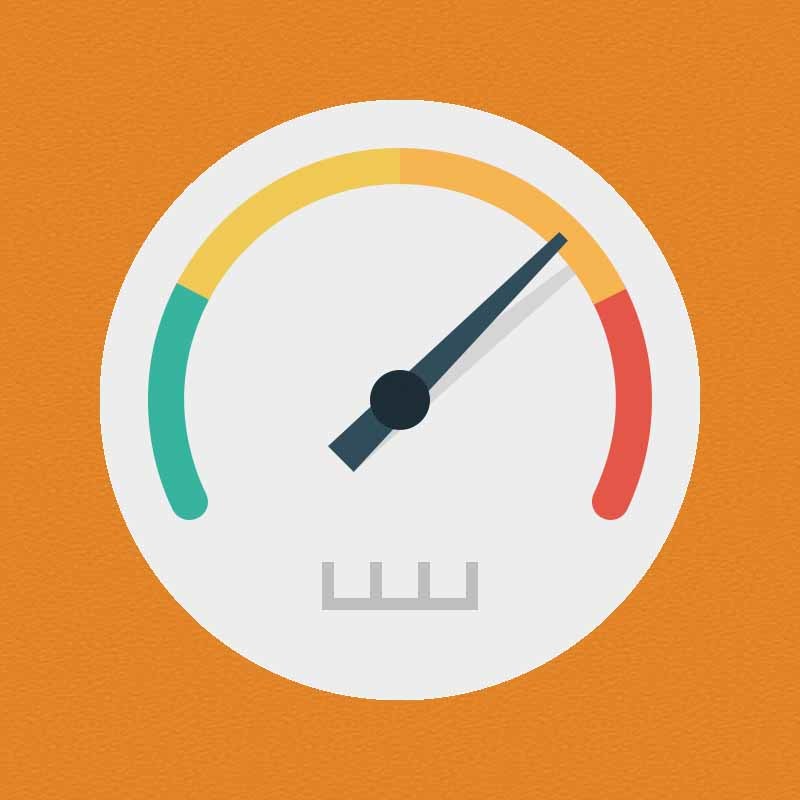Here is an interesting fact:
“On an average a site loses 7-8% of traffic every 1 second delay in loading a webpage. Additionally, this 1 sec delay can
- reduce 11% of the page views
- decrease customer satisfaction by 16%
- lead to 7% loss in conversions
It then becomes mandatory to keep site speed at back of your mind while optimizing your website. When you think about it, it’s easy to find tons of articles showing several pointers to achieve a ‘fast loading’ site.
But, before we get into all that, it is essential to know why site speed is such an important factor for search engine providers? Why search engines have been pushing for lightweight websites for a very long time?
Is site speed a big factor?
Google has been running their own speed testing systems since 5-6 years, including various experiments on Google.com. In fact, in a June 2009 post, Matt Cutts spoke about purposely slowing down the Google search results to measure the impact on search trend and behavior. After running numerous experiments, Google concluded that a faster web is a good thing all around.
It’s not difficult to understand. When people use a search engine, they expect the best search results and user experience all the time. A fast loading website adds to the impression.
Slower site speed would lead to abrupt experience for your visitors. It could force them to go away without interacting with the content on the page. Hence, an increase in bounce rate which is eventually bad for search rankings. With a complete reboot (caffeine update), Google, along with almost every other search engine has added overall site speed as one of the major factors for indexing. With the introduction of accelerated mobile pages (AMP), Google has again proved speed at center of everything.
and, it is important.
Ask yourself? How many times have you closed the window while you were patiently waiting for a website which took an eternity to load?
We live in a fast-paced world. Businesses are heavily optimized to save every microsecond for more efficient processes. It becomes absolutely essential that anything your visitor’s click on, opens up almost immediately. You don’t want to offer reasons for users to move away. In fact, speed is the last thing you should be worried about. It could affect the conversions, sales, and the overall performance. Just think about the reputation of your brand, the value of every hard earned lead and loss of an immediate sale opportunity.
Simple steps to ensure a fast website:
Improve your code – Throw away the unused code from CSS, JavaScript and HTML files. It also helps if you remove spaces, comments and not so useful blank lines from your code. It just needs to be machine-readable. Another good practice is to place all the JavaScript code onto one file. In fact, do the same thing with CSS files. Also, placing the JavaScript files within the footer also helps.
Leverage browser caching – One of the best enhancements that browsers can use is to actively utilize the ability to store information on your visitor’s computer. During repeat visits, this becomes a great time-saver. It’s one of those quick fix that you can use right away. Along with this, always look for ways to improve your server response time. Anything under 180-200 milliseconds is good.
The redirects – Almost always use 301 redirects. However, minimize them through better inter-linking on your website.
Image optimization – Due to easy availability of great cameras on all portable devices these days, the image sizes are usually in the range of 5 to 10 MB. That’s great for image quality but not for your website. Convert these files to a more optimized format. Compress the images with the easily available free tools.
Conclusion:
Although there is no set time limit, but it’s safe to say that anything under 2.5-3 sec is the maximum loading time for a healthy website. It’s not a guarantee, yet it’s a safe bet that your website will be indexed quickly.
In short, a slow loading website is bad news for everyone. Although the productivity and effectiveness of a website isn’t always closely linked with its ranking (for certain businesses). But, it’s always super important to make the search engines happy. The faster you make your site, better user experience you are going to offer, and closer you get to that elusive number one spot in search engine rankings.
Faster sites always show better results. That’s the bottom line.

